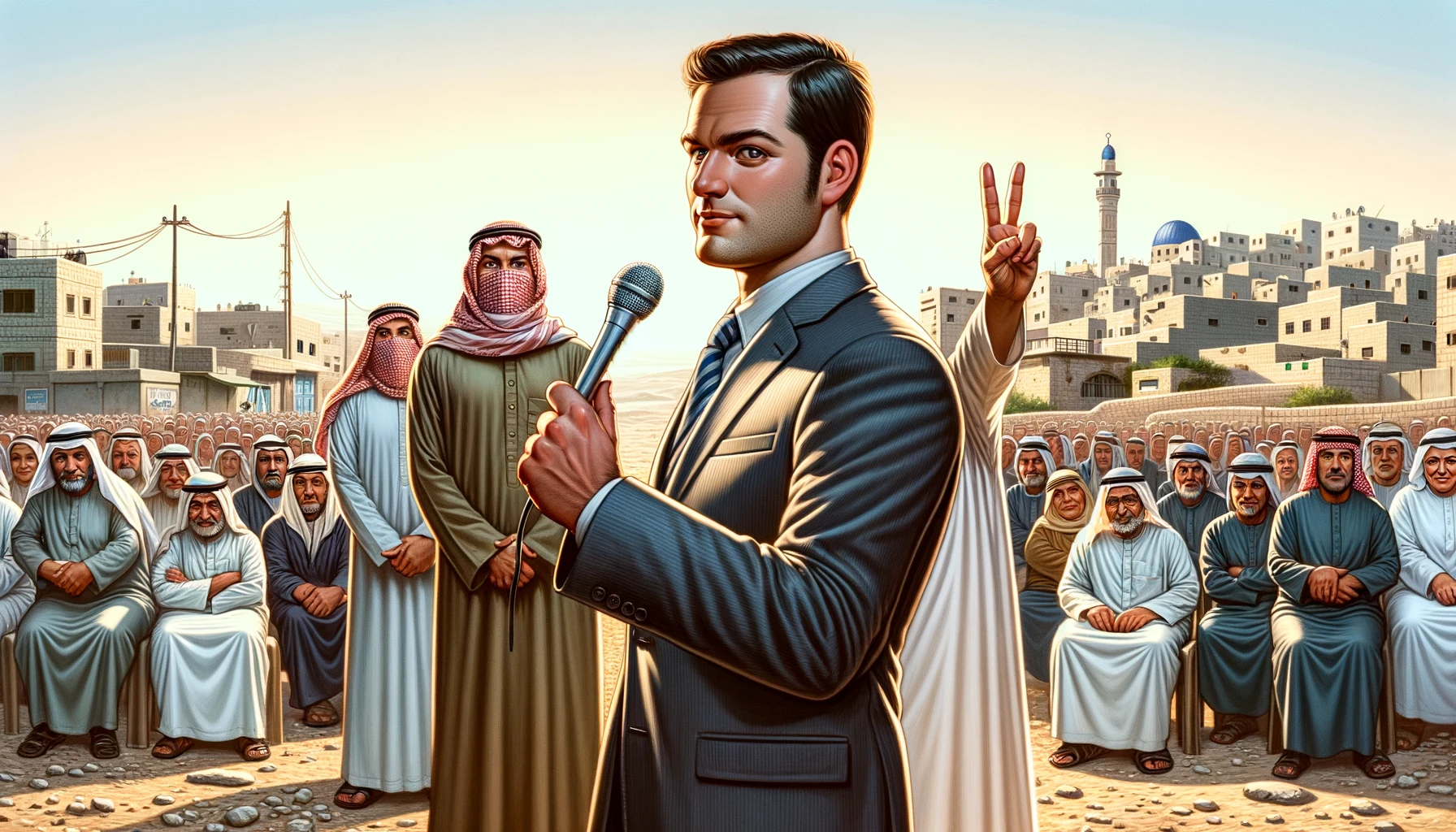Don’t Let Polls Mislead You
Polls that tell you West Bank Palestinians support Hamas must not be taken seriously. The absence of a political horizon for a two-state solution is what radicalizes the Palestinian public, youth mainly, more than anything else.
Less than a month before October 7, Palestinian President Mahmoud Abbas spoke at the UN General Assembly meeting on Sept. 21, 2023. He demanded the UN protect the Palestinian people from the policies and measures of the Israeli occupation. “We demand protection. We want to be protected from occupation, from the constant aggressions of the occupation army and the terrorist Israeli settlers. We call for support when approaching international courts and bodies with jurisdiction because the current situation is intolerable,” said President Abbas.
The Israeli war on Gaza that followed the horrible events of October 7 was the ugliest evidence that President Abbas was right. Even those who at the time ridiculed his call have changed their views. The horrible outcome of the war was more than enough to change their conviction. “I have always disliked President Abbas, but frankly, I admire his wisdom,” said Lutfi, a 45-year-old Palestinian. He added, “If it hadn’t been for the restrained policy he took, we could have witnessed devastation everywhere in the West Bank, probably even more than what the Gaza Strip has seen in the past five months of the war.”
A former member of Fatah’s al-Aqsa Martyrs’ Brigades who was released last September after spending 20 years behind Israeli bars for shooting and injuring three Jewish settlers in the first year of the Second Intifada in 2001, Lutfi said he was amazed at the “speed and efficiency of the Hamas attack on Israel’s southern towns on October 7.” But as time passed by and the death toll continued to rise in Gaza, his amazement turned into a tremendous frustration because the movement behaved as a splinter faction that cared only for personal interests and benefits and never took a single step to protect the innocent civilians who have paid the direst price in their lives, property, and national pride.
Lutfi’s sentiments characterized the Palestinian public perception of what is happening in Gaza. On one hand, people wanted change, and change was the last thing the PA under Abbas could deliver lately with the amount of financial pressure that Israel has exerted through withholding hundreds of millions of shekels of tax revenue, the daily incursions and raids on Palestinian cities and villages in the West Bank, and the reinforcement of travel restrictions within the West Bank that are reminiscent of what Israel did throughout the four and a half years of the Second Intifada between September 2000 and February 2005.
I wasn’t surprised to hear average Palestinians diagnosing Israel’s policies and measures in the West Bank as a form of a war of attrition that started when Netanyahu became prime minister in 2009. Since then, all efforts to resume peace talks and reach a settlement of the conflict based on the two-state solution have failed, the Palestinian dream of ending the Israeli occupation has eroded gradually, and sentiments of identification with Hamas ascended so fast on October 7 only because the Islamist movement hit Israel hard in its most sensitive zone: the pride of the “invincible army.” In short, the ongoing occupation and the absence of the light at the end of the tunnel, which seems to have no end at all, are what radicalize the Palestinian public, mainly the youth, more than anything else. People want a bright future, something that wars cannot bring.
One needs to watch a single televised news bulletin on any of Israel’s TV channels to understand the impact of October 7 on Israeli society, the differences that keep floating between the political, security, and military echelons, and the public outcry demanding that Israel cuts a deal with Hamas to bring the captives back ASAP. All these are signs of weakness that average Palestinians believe couldn’t have happened if it hadn’t been for October 7.
The question that started to appear in public discussion revolved around whether the price paid in Gaza was worth this split within Israeli society. None of those I spoke to daily in various parts of the West Bank ever gave a positive answer.
There is a consensus among the Palestinians in the West Bank that Hamas is to blame no less than Israel for the plight of the people in the Gaza Strip. They argue that whoever wants to go to war of such magnitude should prepare in advance to protect innocent civilians. Stupid statements like the one by Mousa Abu Marzook, former head of Hamas political bureau, who said Hamas built the network of tunnels in the Gaza Strip to protect its fighters and their families while protecting the civilians was UNRWA’s responsibility, outraged the Palestinian public everywhere, inside the occupied territories and abroad.
The late Israeli Prime Minister Shimon Peres once said that polls “are like perfume: pleasant to smell, dangerous to swallow.” He was right. Polls can be misleading. Since then, I have rarely believed in polls because respondents may give irrational answers under irrational circumstances or environments. The same applies to the polling and predictions that precede elections.
An Israeli friend once told me that the public in Israel has consistently spoken of the need to reach an accommodation with the Palestinian people. Some call it a two-state solution, others think of different scenarios, but all agree that peace and security are their driving force toward a historic rapprochement with the Palestinian people. However, he noted, when they go to the ballot box on election day, they vote with their guts, often choosing parties that are antagonistic to a political settlement with the Palestinians.



